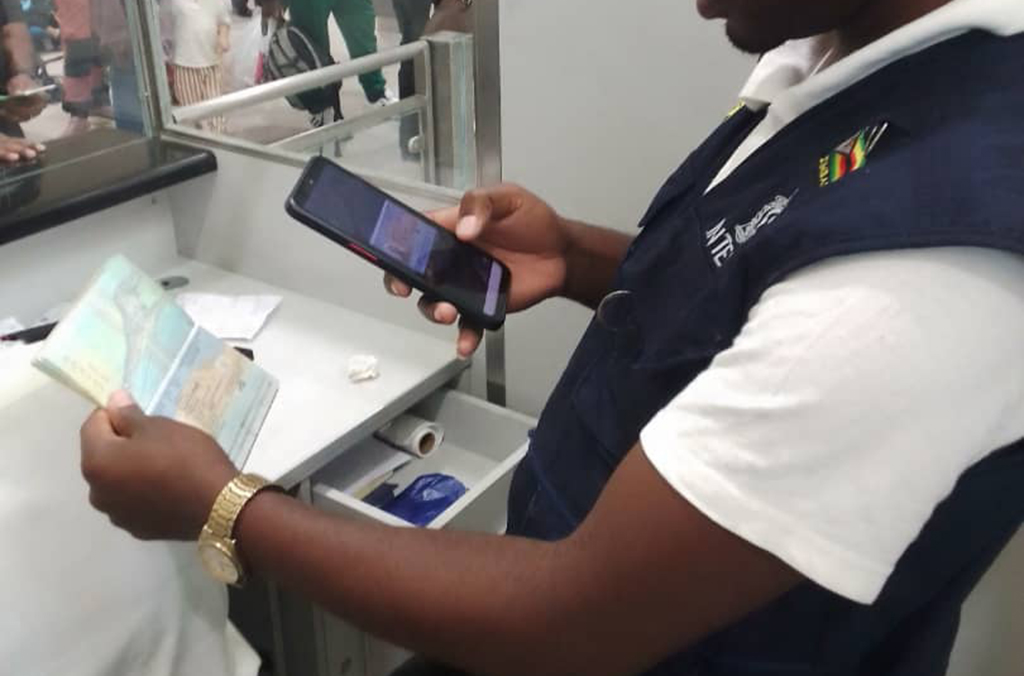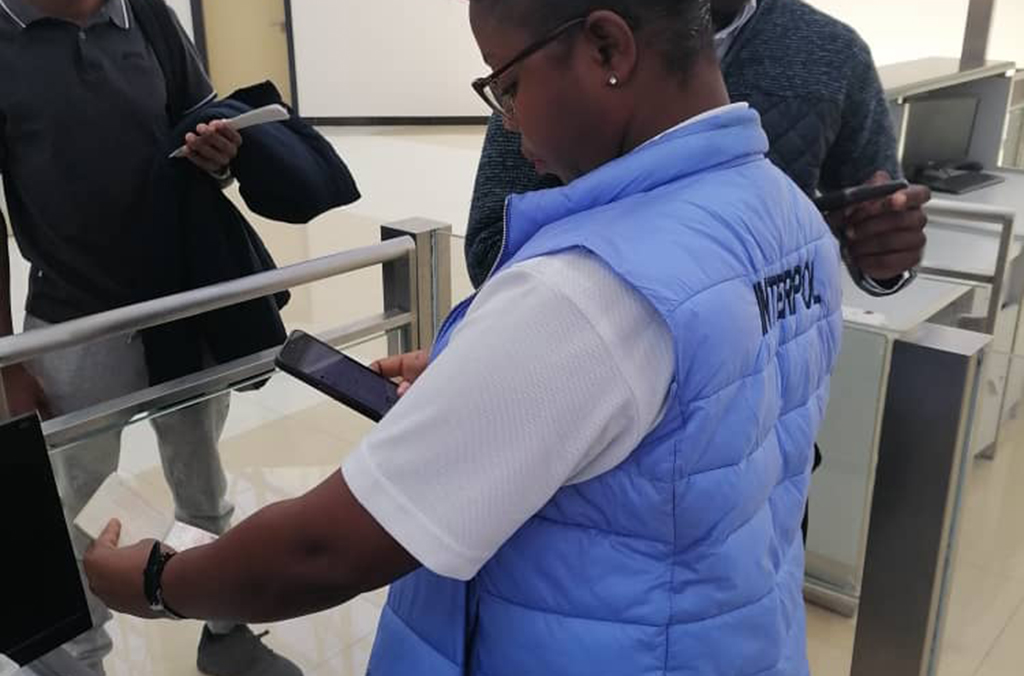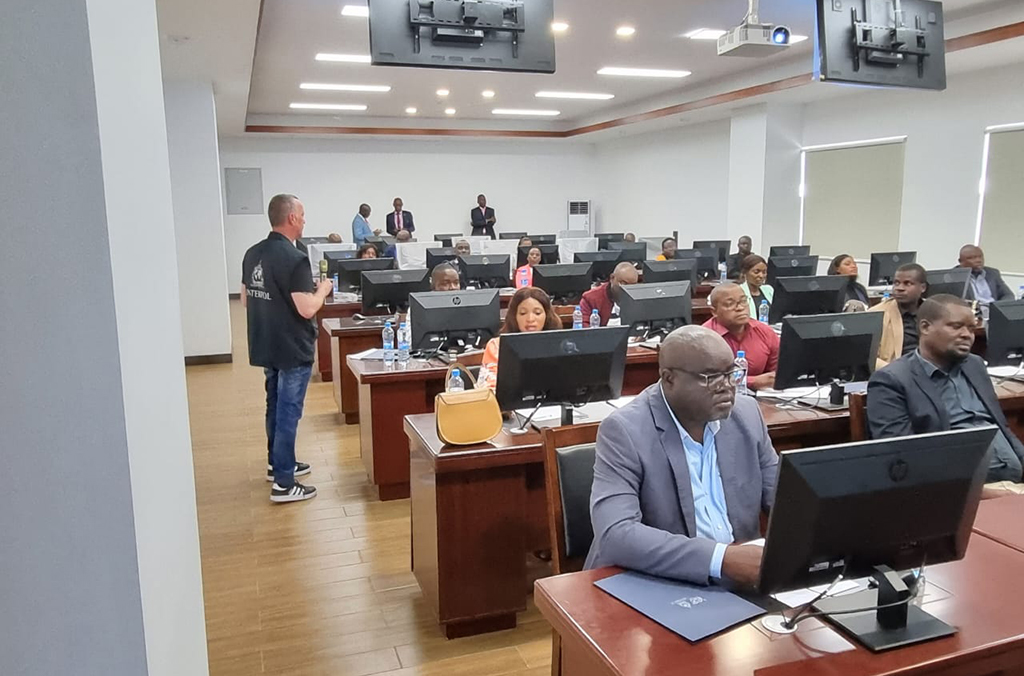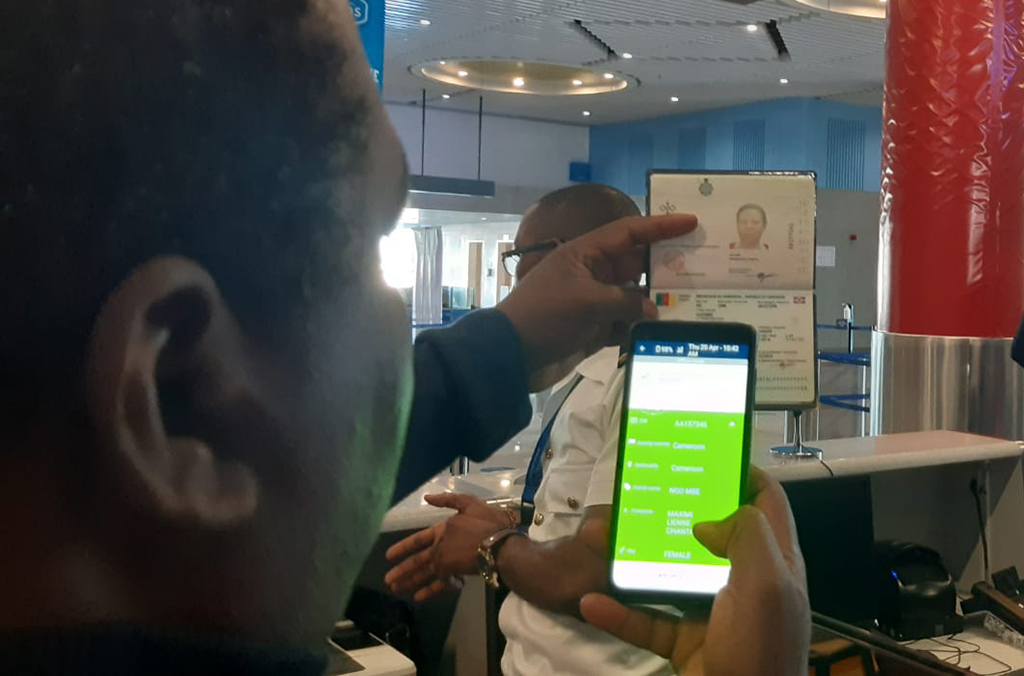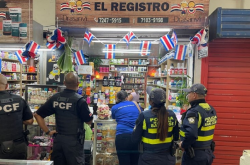LYON, France – Efforts to boost border security in Zambia and Zimbabwe through operational training and enhanced use of INTERPOL policing tools saw more than 100,000 checks carried out against its global databases, generating hits for individuals wanted internationally.
The two phases of INTERPOL’s Smuggling, Training and Operations Programme (STOP) were held at Harare International Airport (3-5 October) and Lusaka International Airport (19-21 April) to increase security procedures at two key travel hubs in Africa.
The operations notably sought to combine efforts with law enforcement agencies worldwide against transnational organized crimes such as human trafficking and people smuggling, as well as terrorism.
More than 17,000 checks were carried out in Zimbabwe against INTERPOL’s global databases, resulting in three hits for individuals wanted internationally under Red Notices for offences including forgery, money laundering and fraud.
During the operational phase in Zambia, some 90,000 checks were carried out against INTERPOL’s databases, resulting in three hits for individuals wanted separately for murder, terrorism-related offences, and money laundering.
More than 40 hits were also generated from checks against INTERPOL’s Stolen and Lost Travel Documents database.
“Operational trainings directly enhance the crime-fighting skills of officers which are then put into practice to strengthen border security.”
At the heart of the STOP initiative is the extension of access for police at strategic border points to INTERPOL's I-24/7 secure global police communications network.
To this end, frontline officers in Zambia and Zimbabwe were provided with INTERPOL mobile devices such as tablets and smartphones, allowing them to run checks against INTERPOL’s databases and receive an instant response.
STOP helps member countries to protect vulnerable communities in the African region through capacity building, operational support, and the consolidation of global information-sharing platforms, providing a legacy of improved national operational capacity.




